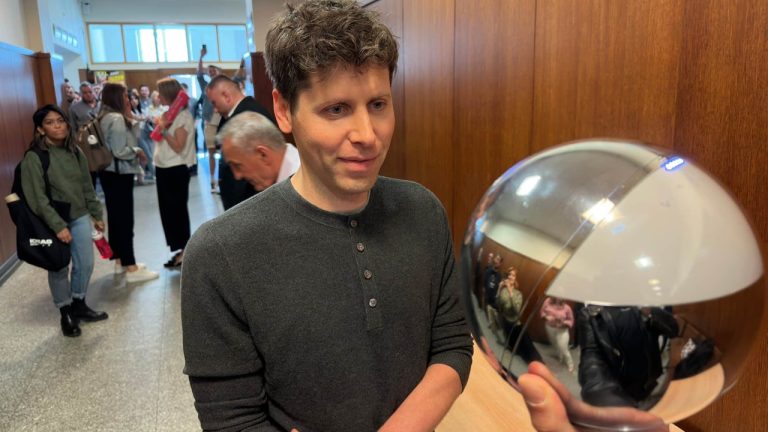Examining Worldcoin’s Concentrated Supply at Token Launch
Publikováno: 25.7.2023
 Following the Monday, July 24, launch of the worldcoin (WLD) token, the cryptocurrency quickly peaked at $3.30 per coin but has since depreciated by over 35%. Despite 18 months of beta testing and claims of more than 2 million sign-ups, the token has a scant 164,195 holders with its circulating supply exceeding 100 million WLD […]
Following the Monday, July 24, launch of the worldcoin (WLD) token, the cryptocurrency quickly peaked at $3.30 per coin but has since depreciated by over 35%. Despite 18 months of beta testing and claims of more than 2 million sign-ups, the token has a scant 164,195 holders with its circulating supply exceeding 100 million WLD […]

Following the Monday, July 24, launch of the worldcoin (WLD) token, the cryptocurrency quickly peaked at $3.30 per coin but has since depreciated by over 35%. Despite 18 months of beta testing and claims of more than 2 million sign-ups, the token has a scant 164,195 holders with its circulating supply exceeding 100 million WLD tokens.
A Look at Worldcoin’s Concentration of Holders at Launch
The Worldcoin iris scanning crypto endeavor, striving to fortify universal basic income (UBI) and promote digital identification amid the era of artificial intelligence (AI), debuted its cryptocurrency on Monday, July 24. As for Tuesday’s data, at 10:15 a.m. Eastern Time (ET), a maximum supply of 10 billion WLD tokens exists, and currently, coingecko.com and coinmarketcap.com report a circulating supply of 107 to 108+ million WLD tokens. Upon its initial exchange listing, the price stood at $1.88 per token, later reaching a peak of $3.30 per coin that same day.
As of July 25, 2023, WLD is being traded for prices ranging from $1.91 to $2.56 per coin, exhibiting extreme volatility. With current prices at $2.17 per unit, WLD has declined over 35% from its all-time high. The Worldcoin concept and initiative have been in existence since 2019 when they were established by Openai CEO Sam Altman, Max Novendstern, and Alex Blania from the San Francisco and Berlin-based Tools for Humanity. Initially created on Ethereum, the token now utilizes the Optimism (OP) layer two blockchain.
The project boasts support from numerous venture capital investors like Reid Hoffman, Andreessen Horowitz, Anatoly Yakovenko, Gavin Wood, Day One Ventures, Digital Currency Group (DCG), Coinfund, Blockchange Ventures, and more. Currently, with 107 million WLD tokens circulating, the cryptocurrency’s distribution is highly concentrated and held by only a few entities. For instance, among the 164,195 unique addresses possessing WLD tokens, the top wallet controls a significant 63.29% of the entire supply.
To illustrate this concentration further: the largest wallet holds 112,540,589 WLD, while the second largest wallet contains 32,488,727 tokens or 18.26% of all WLD. The third biggest WLD wallet possesses 8,722,407 coins, representing 4.9% of the circulating supply. Currently, the majority of WLD tokens are held by market makers and exchanges like Binance, Bybit, and the Optimism Gateway. Very few transfers have occurred since its inception — just 275,591 transactions have taken place since launch. Lots of which are “claim” transfers in the amount of 25 WLD per claim.
The objective of WLD is to ensure fair global distribution to individuals solely based on their unique identity. It’s reported that 75% of WLD will be allocated to the Worldcoin community; 10% is reserved for the Worldcoin team and advisors; an additional 10% is designated for the Worldcoin Foundation; and the remaining 5% is intended for early investors and strategic Worldcoin partners. Yet, the timeline for diluting the currently aggregated supply, along with the duration of its aggregation, hangs in the balance. Presently, it’s the market makers who primarily hold the reins of worldcoin’s (WLD) distribution.
What do you think about the worldcoin supply and how it will be fairly distributed at the level of concentration we see today? Share your thoughts and opinions about this subject in the comments section below.